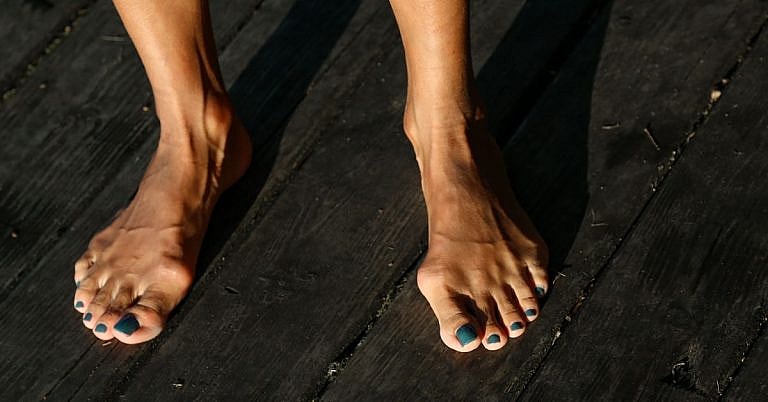Zieve’s Syndrome: Causes, Diagnosis, Treatment, and Prognosis
Zieve’s syndrome is a complication of chronically high alcohol consumption and often develops after periods of drinking a lot of alcohol in a short period of time. It’s characterized by three signs.
Zieve’s syndrome was first described by Dr. Leslie Zieve in the 1950s. It’s a collection of three signs that develop in people with alcohol-induced liver injuries. These signs include:
People with Zieve’s syndrome often have an improvement in their symptoms after completely stopping their alcohol consumption.
Let’s look at Zieve’s syndrome in more detail, including what causes it, symptoms, and treatments.
What causes Zieve’s syndrome?
A syndrome is a collection of signs and symptoms that commonly occur together. The development of Zieve’s syndrome is associated with alcohol-induced liver injury and cirrhosis. It often develops after periods of heavy drinking. Cirrhosis is scarring of your liver that prevents it from functioning properly.
It’s not clear why hemolytic anemia and hyperlipidemia develop in people with Zieve’s syndrome.
Some research suggests that changes to the membrane of your red blood cells due to vitamin E and polyunsaturated fatty acid deficiency may contribute. Additionally, alcohol breaks down in your liver into a chemical called acetaldehyde. Acetaldehyde may inhibit red blood cell enzymes and make your blood cells more susceptible to injury.
Hyperlipidemia may occur due to fat molecules moving from your liver to your bloodstream.
Zieve’s syndrome is associated with alcohol-related liver disease. Risk factors for alcohol-related liver disease include:
Daily consumption of 30–50 grams per day for over 5 years can lead to alcohol-related liver disease. One standard drink contains roughly 14 grams of alcohol.
Cirrhosis occurs in 30% of people with a long history of consuming more than 40 grams of alcohol per day.
Zieve’s syndrome symptoms
Zieve’s syndrome is characterized by:
People with Zieve’s syndrome may initially have symptoms such as:
Hyperlipidemia often doesn’t cause noticeable symptoms.
Jaundice is characterized by:
Hemolytic anemia might cause:
Most cases are also associated with acute pancreatitis, which can cause:
Potential complications of Zieve’s syndrome
Developing Zieve’s syndrome is a potential warning sign that you’re at risk for severe cirrhosis and liver disease. Cirrhosis can lead to liver failure, which is when your liver can no longer perform its normal functions adequately.
A liver transplant is often the only cure for chronic liver failure.
When to contact a doctor
It’s important to contact a healthcare professional right away if you develop signs of jaundice like yellowing of your skin and eyes. Jaundice is often a sign of liver disease.
Other signs that should prompt an immediate visit to a doctor include:
Diagnosing Zieve’s syndrome
More than 200 cases of Zieve’s syndrome have been reported since it was first described in the 1950s. Most of these cases have been initially misdiagnosed. Its true prevalence isn’t known.
Doctors can usually establish a diagnosis with:
A bone marrow biopsy may be performed in some cases.
Zieve’s syndrome treatment
Zieve’s syndrome is primarily treated by completely stopping alcohol consumption.
When Dr. Zieve first described the condition in the 1950s, he noticed people had spontaneous resolution of their symptoms when they quit alcohol.
You may also receive repeated blood transfusions to help increase your red blood cell count.
Plasmapheresis may be considered if you have a high chance of intracerebral hemorrhage and a history of pancreatitis. This procedure involves removing plasma from your blood.
Living with Zieve’s syndrome
Most people with Zieve’s syndrome seem to recover completely within 4–6 weeks if they completely stop drinking alcohol. It’s thought that quitting alcohol allows fat to move from your blood back to your liver and reduces your red blood cells’ susceptibility to injury.
If you don’t quit drinking, you may have a chance of severe liver damage that can be life threatening. Quitting is often difficult, but a doctor can help build a cessation plan that works for you.
Can you prevent Zieve’s syndrome?
The best way to prevent Zieve’s syndrome is by consuming alcohol only in moderation and avoiding overconsumption.
To reduce the risk of alcohol-related disease, the Centers for Disease Control and Prevention (CDC) recommend that on days you consume alcohol:
They also don’t recommend starting to consume alcohol if you don’t currently drink. Their stance is that drinking less is always better for your health than drinking more.
Learn more about how to stop drinking.
Takeaway
Zieve’s syndrome is characterized by three signs: jaundice, hemolytic anemia, and hyperlipemia. It usually improves once you quit drinking alcohol. Continuing to drink may put you at risk of severe liver disease that can be life threatening.








This was a very informative and well-written article! I’ve never heard of Zieve’s Syndrome before, and your breakdown on the causes and treatment options really helped me understand it better. It’s clear and concise, and I appreciate the detailed insights on the diagnosis process as well. Thanks for sharing such valuable information!
This is a very informative post on Zieve’s Syndrome! Understanding the causes and diagnostic approach is crucial for early detection and management. The detailed treatment options and the emphasis on prognosis provide a comprehensive overview for both medical professionals and patients alike. Thank you for shedding light on this often overlooked condition.
This is a very informative and comprehensive post on Zieve’s Syndrome! It’s great to see such detailed insights into the causes and diagnosis. The breakdown of treatment options and the prognosis is particularly helpful for those who might be dealing with this condition or know someone who is. Thank you for shedding light on this lesser-known syndrome.
This is a very informative article! I appreciated the detailed breakdown of Zieve’s Syndrome, especially the sections on the underlying causes and the diagnostic process. It’s crucial for more awareness around how chronic alcoholism can lead to such complex conditions. The treatment options and prognosis information were also very helpful. Thanks for shedding light on this lesser-known syndrome!